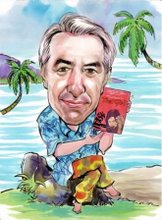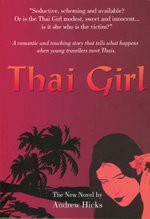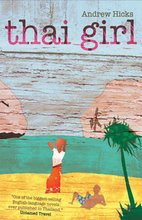
Water buffaloes are a veritable icon of South East Asia, and not least of all in relation to Isaan, the huge rump of dry country in the North East that is the largest part of what still remains of the ‘real rural Thailand’.
When a Thai calls someone, ‘kwai’, a buffalo, it’s a big, big insult. You can see the shock registering on the faces, which is surprising as they’re nostalgic about their buffaloes too. For generations it was the buffaloes that pulled the wooden ploughs through the wet ground to prepare the rice paddies and were so crucial to the whole way of life. The oxen were no good for ploughing as in wet conditions they have problems with their hooves, though they were strong enough to pull the traditional wooden carts.
A family buffalo often had a long working life so as a young adult working the land, your dour, four footed workmate could actually be older than you, a valued friend from your earliest childhood. The folk round here can be quite fond of their buffalo, talk to her by name and be sad to see her go when inevitably her time is up.
Go most of the buffaloes now have, the current population down to a small fraction of the former numbers. Sadly they have been superseded by the two wheeled tractor or ‘iron buffalo’ powered by a Korean Kubota engine which is used for ploughing, for towing trailers and as a power take-off for pumps and circular saws. Yet many buffalo still remain here in the Surin countryside for example and they are not a rare sight, as they wander head down in search of grazing or cool themselves in a muddy wallow beside the road.
Buffaloes are well adapted to local conditions, so long as water is available for wallowing. They don’t use diesel fuel and they’re much better than cows at converting poor quality feed such as rice straw or stubble. They are not worked any more, and have never been milked, so are now raised solely for meat.
I can see why the locals are so fond of their buffaloes. They’re quite attractive animals in a solemn sort of way and the calves can be distinctly cute. They’re good natured too and the kids ride them and play with them in the muddy water without coming to any harm. I’m really not sure why calling someone a buffalo is so rude.
Many families still have a buffalo or two, but they do not put them in a stock proof field as meadows for grazing do not exist. The buffaloes are simply taken out in the morning often on the end of a string, shepherded to any scrap of grass that can be found among the rice crops and on anybody’s land and then brought home again in the evening. It’s no picnic and ‘liang kwai’, looking after the buffaloes is a full-time job. The dry season is bit easier though as with no standing crops they can wander freely and may even be left to find their own way home as the sun falls in the west.
Raising stock is profitable here as there are virtually no costs involved, except providing a shed for the night. The animals multiply of their own accord and they eat free grass provided by the neighbours. The big cost is not in cash but in time, and you’ll need to have plenty of it. That’s where the old men step in.
When Papa gets old and weary from a lifetime’s toil, he hangs up his hoe and passes on his rice fields to his children. There’ll be no pension or Saga holidays for him and he never goes anywhere, so he has lots of time on his hands. Essentially he now has three options in deciding what to do with the rest of his life. All of these are essentially sedentary, solitary and contemplative.
Thus he can become a monk, he can take to the bottle or he can spend his days with the buffaloes and cows.
Taking the buffaloes out every day and watching them eat thus becomes a metaphor for the unhurried idyll of the fields, the reward at life’s end as the animals add weight and wealth slowly accumulates.
It’s really not a bad way to go and I’m in much the same situation as the old men around me, with time on my hands and not too much to do. Perhaps I should give up blogging and get myself a buffalo!





1 comment:
Thanks for the extensive and comprehensive overview of the kwai... I asked my 'Thai girl' why 'kwai' was an insult and she confirmed it is because a kwai's main potential and purpose is to plow a rice field, thus to call someone a kwai, is to charge that he/she is so stupid that he/she only can look forward to plowing rice fields, as they would not be smart enough to amount or achieve anything else...which I'm surely you probably already got that, and were just being using rhetorical...Anyhow, cheers mate, loved your book, though I thought you would be as old as the hero...young at heart though for sure!
Post a Comment